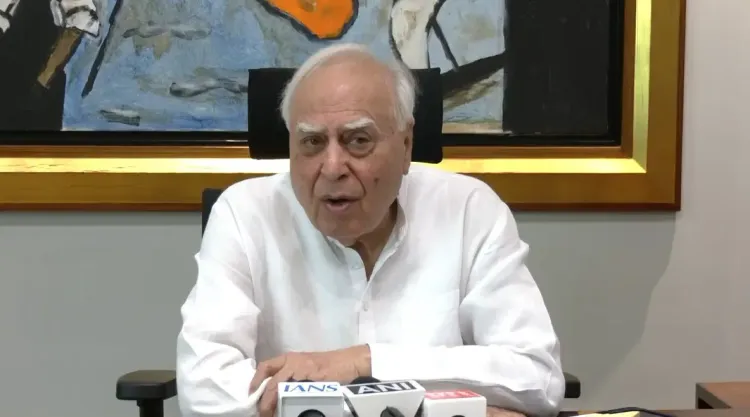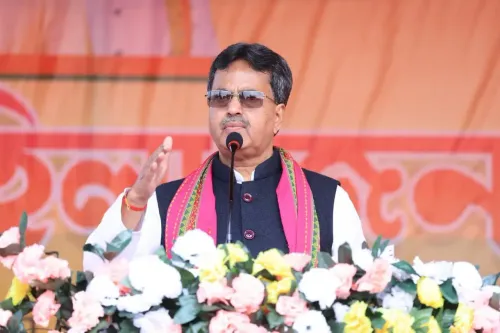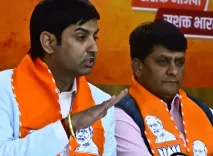Supreme Court Establishes Timelines for President and Governors on Legislative Bills; Sibal Calls Ruling 'Historic'

Synopsis
Key Takeaways
- The President must act on Bills within three months.
- Governors can keep Bills pending for a maximum of three months.
- States can seek writ petitions if the President fails to decide on Bills.
- The ruling aims to restore governance and stability in opposition-ruled states.
- The President must provide reasons for his decisions on Bills.
New Delhi, April 12 (NationPress) Following the Supreme Court's establishment of specific timelines for the President and Governors regarding their actions on legislative Bills, prominent lawyer Kapil Sibal described this ruling as a historic decision.
“This is a historic judgment. Several issues concerning the governor's discretion, which have been pending before the Supreme Court, will now be addressed,” Sibal stated at a press conference on Saturday.
In a significant resolution of a long-standing constitutional deadlock in Tamil Nadu, the Supreme Court mandated that the President must make a decision within three months on any Bill that is reserved for his attention by a Governor. Furthermore, the Court established explicit timelines for actions taken by Governors on state Bills.
A bench consisting of Justices J.B. Pardiwala and R. Mahadevan declared in the judgment, released on Friday evening, "The President is required to take a decision on the Bills reserved for his consideration by the Governor within a period of three months from the date on which such reference is received."
The Court clarified that if a decision is not made within this timeframe, states are entitled to file writ petitions seeking a writ of mandamus against the President.
Elaborating on the implications, Sibal noted, “This ruling is vital because since the BJP assumed power, governors have frequently acted based on personal discretion. Even when a Bill is approved by the state legislature, governors have postponed assent indefinitely, obstructing governance and affecting millions of individuals.”
Sibal claimed that such delays were particularly prevalent in opposition-led states and were intended to induce instability. “This contradicts the federal structure of our democracy,” he remarked.
“While the governor can still return a Bill for reconsideration, there is now a limit -- they can keep a Bill pending for only three months. If the legislature re-passes the Bill and sends it back, the governor is required to act within a month,” Sibal clarified, adding, “They still possess the discretion to refer a Bill to the President, but now even the President must adhere to a timeline.”
Sibal also pointed out a notable observation from the judgment: “The more centralised the power, the greater the potential for blood pressure,” he quoted the Court as saying.
In decisively resolving the Tamil Nadu standoff, the Court invoked its powers under Article 142 of the Constitution to declare that the 10 Bills withheld by the Governor were considered to have received assent on the day they were re-considered and re-passed by the legislature -- November 18, 2023.
The bench remarked that the Governor had withheld the Bills for an “unduly long” duration, violating principles established in the Punjab Governor’s case in November 2023.
“He appeared to have been influenced by external considerations,” the Court observed.
Importantly, the Court ruled that once a Bill is returned, re-passed by the legislature, and presented again to the Governor, it is not permissible for the Governor to reserve it for the President’s consideration. Moreover, the President is now obliged to provide reasons for their decision, which must be communicated to the state government.










